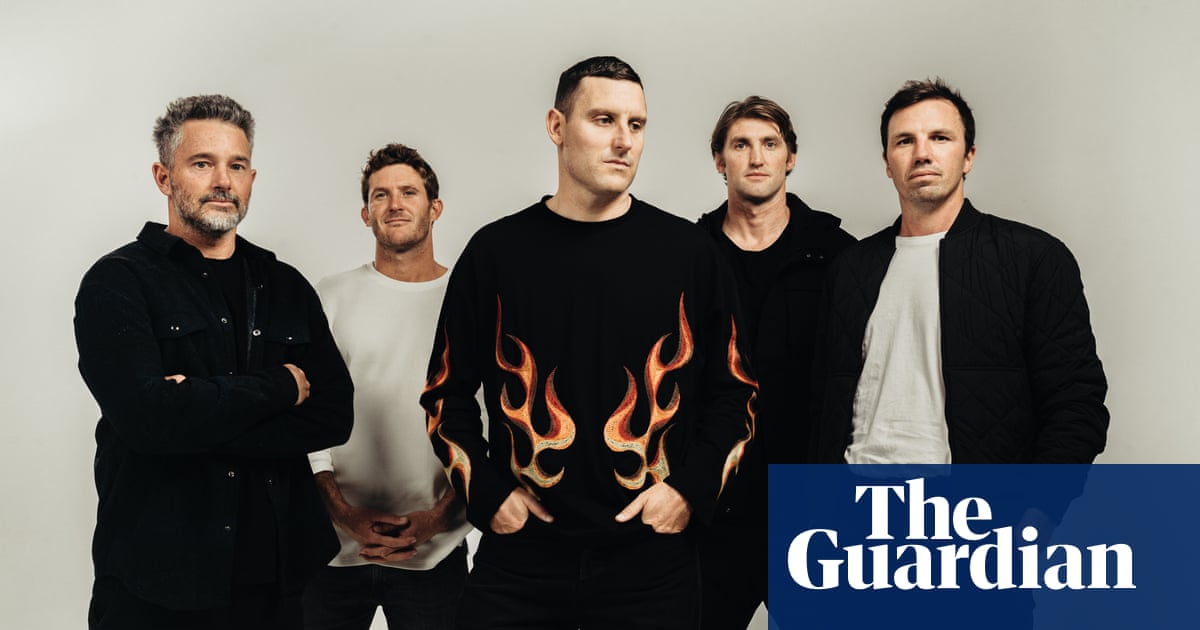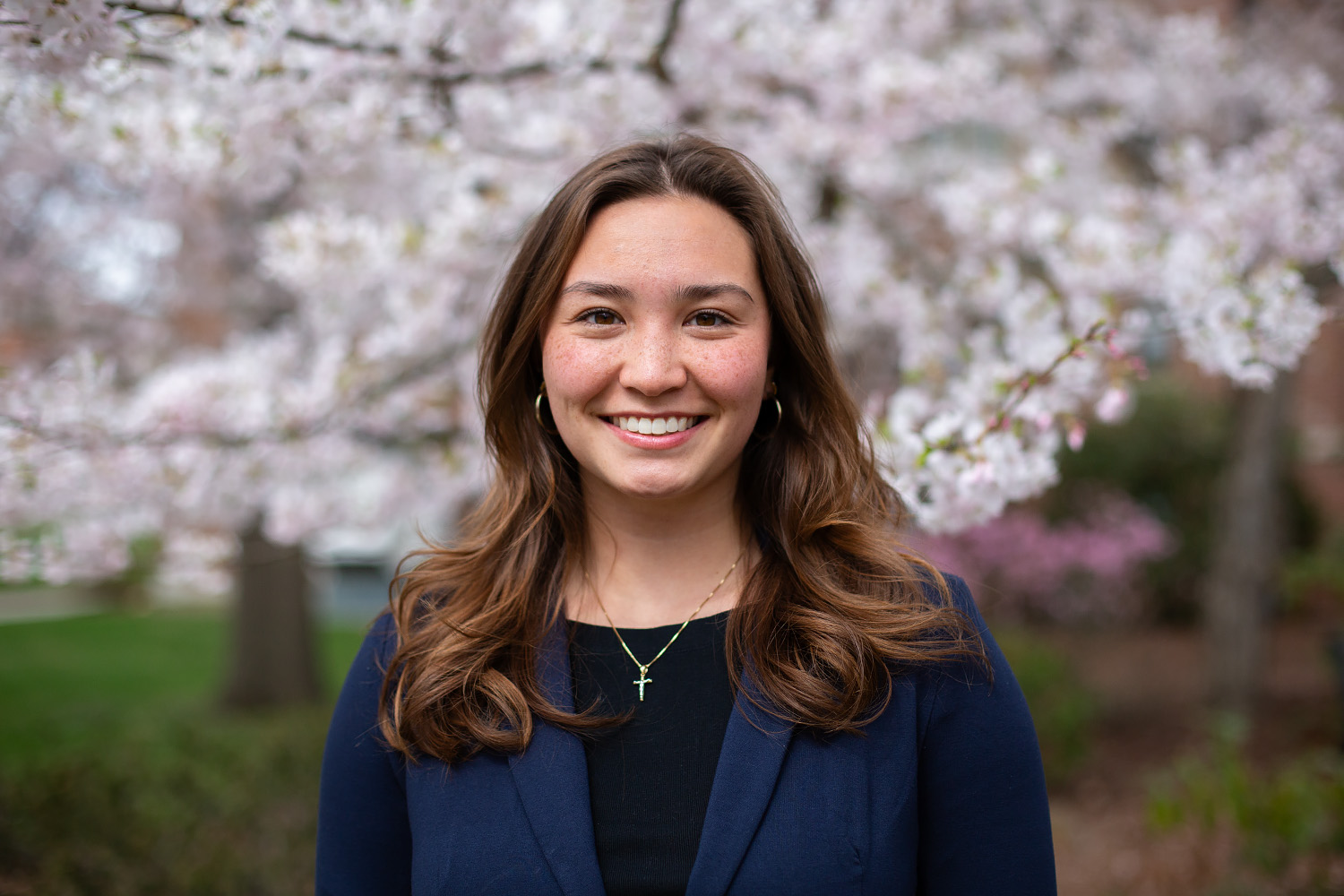
‘We just tore each other down’: why Parkway Drive went to therapy
Imagine being in marriage counselling and discovering that your partner of 20 years actually hates that thing you always say. Recently, Winston McCall found out that the other four members of Parkway Drive “don’t connect” to his lyrics.
And that was the least of their problems. There was also a disconnect between the members of the band who have children and those who do not, the pressure of being self-managed, the never-ending hamster wheel of the touring circuit, and the constant threat that everything they have worked for could crumble beneath them at any moment, leaving all five men with “no education, no resume and no access back into society”.
At a crisis point like this in a mammoth band’s trajectory, at least two members usually throw down the gauntlet and launch solo careers. Instead, Parkway Drive chose therapy. A Facebook post went up in April, announcing they were cancelling their US tour ahead of their new, seventh album Darker Still. “We feel the limit has been reached and we don’t want to fuck this up,” they wrote. Instead of touring, frontman McCall, guitarists Jeff Ling and Luke Kilpatrick, bassist Jia O’Connor and drummer Ben Gordon began regular sessions with a counsellor in a neighbouring town to their native Byron Bay.
Whatever pedestal I’m on, on that big old stage, I’m just a person … I still put my pants on one leg at a time
It’s nearly two decades since the release of the Metallica documentary Some Kind of Monster, which followed the heavy metal behemoths into group therapy. At the time, it seemed unfathomable that such a band – afforded godlike status by millions – would choose to reveal the mess that lay beneath. As it turned out, Some Kind of Monster was so pivotal in opening conversations about mental health in the music industry that, rather than being a cringeworthy moment in Metallica’s story, the film was rereleased 10 years later with bonus material. So it seems odd that record companies haven’t taken note when even sporting organisations now have wellbeing initiatives.
McCall agrees. “We started with mediation and our mediator was like, ‘You’re doing what every business of your size does; they do this twice a year,’ but the music industry doesn’t have anything like it,” he says. “The industry is a dinosaur being ridden by these tiny little creative people who are incredibly fragile but also can grow massive egos. But the only support that’s provided is, ‘What do you want on your rider that gonna numb some shit?’”
- Sign up for the fun stuff with our rundown of must-reads, pop culture and tips for the weekend, every Saturday morning
McCall has remained a genial open book after 20 years as the band’s frontman; I can vouch, having interviewed him a lifetime ago and finding him unchanged, on the surface at least. But it takes a toll. He calls himself a people pleaser, and his big ambitions are at odds with the Australian code of not getting above your station.

“We’ve grown up in the band with a concept of ‘if everyone is nothing then we’re all equal’ – so rather than lift each other up we just tore each other down,” he says. “We didn’t acknowledge any of our success or our ability. There’s been passion and calculation in everything we’ve done. It just wasn’t acknowledged because you’d be scared that you’d be called a wanker.”
When they first formed in 2003, Parkway Drive were all about creating a mosh for their mates; a bunch of loose-unit surfers who joked about being lucky idiots who couldn’t play their instruments. But years later, when global success arrived, they were still harbouring that attitude. Their last album, 2018’s Reverence, debuted at No 1 in Australia, and all of their six previous studio albums have been Aria-certified gold. Obviously, as McCall points out, that wasn’t a fluke.
While their music – “metalcore”, though it’s become increasingly melodic and theatrical – was always heavy, it was getting exponentially darker in mood. Reverence tackled grief, in response to the band experiencing a few deaths at close quarters. Darker Still sounds like going to battle; McCall describes its arc as being based around “the dark night of the soul”.
The band’s 2020 documentary Viva the Underdogs seemed like it would follow a particular arc – following the band, now an unstoppable juggernaut, ploughing through Europe and pouring every cent into each pyrotechnic-tastic stadium show, before they cracked under the pressure. Instead, it climaxed with a triumphant set at massive German festival Wacken and didn’t show what happened next. What happens to the psyche when you’ve reached your ceiling; in this case, dominating the European summer festival circuit?
In a way, the band dodged that bullet because the pandemic stopped all performances, McCall says. But when they started to work on Darker Still, things fell apart.
“There’s a lot in this album about stepping into an uncomfortable role of being a villain in someone else’s life, which is a very confronting thing,” McCall says. “Being in a band, that can come in many forms – I’ve had people very close to me and very far, who see me as a villain.”
I suspect this links to his comment earlier about the ever-present threat of being seen as a “wanker” keeping all the members in line. Parkway Drive is a Swiss army knife of a band, with all five members contributing to management, designing the live show and running their own label imprint. But as the frontman, McCall is the band’s avatar. He holds the hopes and aspirations of the audience in his hands. He leads the band with a flaming torch through the crowd to the stage (“the Moses of the mosh”); he crouches, beseeches, instigates chants, speaks authentically of his appreciation of the fans. In short, he inspires a reverence that might grate with those closer to home.

“One hundred per cent,” McCall says. “It’s iconography, that’s the thing. The frontman is the icon of engagement, which is a very hard thing to bear. Whatever pedestal I’m on, on that big old stage, I’m just a person. It’s a challenge to reconcile that icon with the reality of my existence, which is quite ordinary. I still put my pants on one leg at a time.”
Heading out on their European tour this month, Parkway Drive will use all their newfound therapeutic tools to avoid winding up on separate tour buses. McCall says the kinship and creativity he feels with the other four members is an alchemy he will never find anywhere else. “I’d never want to leave because I feel something really special when I create with the other guys and I know they do too.
“I will acknowledge now that I’m the most ambitious person in this band,” he concedes. “As long as there is a band and a place and a fanbase that is more expansive than we already have, that’s where I’m trying to take us. It’s not about sacrificing the art, it’s about having the goal of not settling. I mean, how many people are there on the planet?”
Darker Still is released by Parkway Records on 9 September











































































